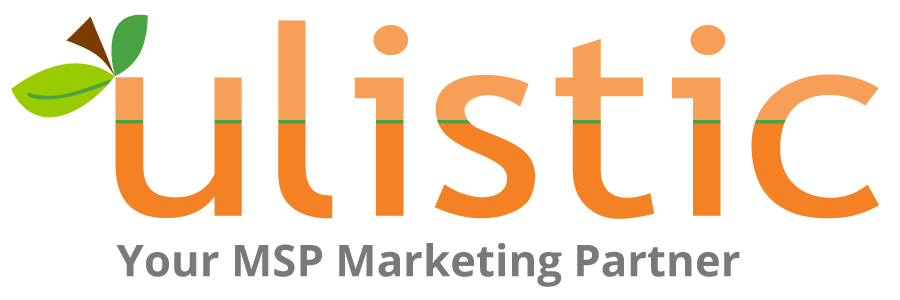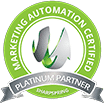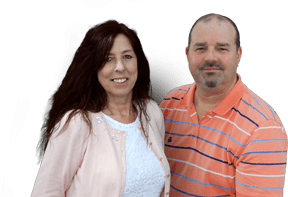The MSP Show is a podcast for Managed Services Providers looking to grow and build successful managed services businesses. Podcast host Stuart Crawford interviews peers and leaders in the Managed IT Services industry. Here's an account of his recent interview with Sandra Lofton, CEO of Hits Tech, a North Carolina MSP specializing in healthcare IT services.
Sandra Lofton has owned a nursing center for the past 25 years and has been in the healthcare industry as a consultant to hospitals, nursing centers and private practices for 37 years. Crawford asks Lofton to tell the story of her move into medical IT and the development of her successful tech services company.
How did you become interested in starting a medical IT services business?
Lofton explains that about 15 years ago, she decided to take the leap and transition her business to using electronic medical records (EMR) before it became mandatory to do so.
After converting to EMR, all of the technology had been put in place and systems were operational, but about three years down the road our business started having issues with not having the resources to hire individuals to manage the services we needed.
Sandra reached out to her current partner about starting an IT company. They then they went into business together to start up a medical IT services company, which is now ten years old.
What are some of the IT challenges for North Carolina health care practices today?
HIPAA is, of course, always essential. Cyber-security for healthcare facilities is also a huge issue. With all of the cyber-security problems across the nation, in healthcare and all other types of organizations, people are handling a lot of sensitive information that has to be protected by all means.
In addition to the volumes of patient records that must be kept strictly confidential, in compliance with HIPAA laws, Lofton explains the broader needs in comprehensive IT support for health care facilities.
We've found that in providing IT services for smaller medical practices, much of the need is just for accessibility to IT professionals who can oversee your entire IT system, make sure that all facets of the system are updated on a routine basis, and that patchwork is done routinely. Ensuring attention to all of the typical systems management responsibilities that sometimes an in-house medical IT person doesn't think about is essential for their operations.
Our larger clients' find it's much better for their organizations to have a relationship with a company that provides the services that we do. In the event that there is turnover, or when there's a loss of IT management coverage during someone's vacation, they need healthcare IT specialists who can step in and review their systems and keep things running correctly, so that they can provide the care their clients need at all times, without risk of disruption.
Of course, whether it's an orthopedic, cardiology or general practice, technology impacts the entire patient experience. How does Hit Tech help medical practices improve their efficiency, workflows, or the patient experience?
Depending on what the client's needs are, we help by working with them from the beginning of their research, to find the correct software programs that they need, to provide the technology services they need, provide the iPads and workstations they need, and provide all necessary support. Our role is to help ensure that it's as easy as it can be for them to access everything they need in their IT system from the moment a patient walks into the door until the moment they leave.
When you walk into one of today's medical centers, the staff are all working on iPads and laptops. The doctors all have their iPads or laptops in the examining rooms now. Medical practice has changed dramatically. And, now with the sharing of information, when you go to a cardiologist's office today and you see a neurologist tomorrow, all of your medical information is kept in a cloud-based system. Your physicians, who are all talking to each other continuously, can view it and discuss it.
The technology aspect of medical practice today is very dynamic. And, healthcare IT management's role in keeping up with what the market needs is significant and innovative.
Technology is impacting everything. Now physician's offices are putting information kiosks in rooms where you're waiting for your doctor to come in so that you can get more information. Do you advise on those types of systems?
We primarily provide back-end support. We make sure that whatever systems and programs the healthcare facility chooses run efficiently and that they can do what the practice is expecting them to do. We're not a clinically-based services company. We load the software programs, get them up and running, and do whatever needs to be done on the technology side for our clients. We make sure that their IT systems and applications keep working correctly so that their technology does what it's supposed to do for them.
What was your biggest Aha! moment on the MSP side of your life? What happened in the last ten years that made you say the light bulb is on—this is this is where we need to go?
One of the most significant light bulb moments for me was realizing that you can't do it the way you've always done it before. You have to be willing to change and change quickly. Yes, you have to do your research. Yes, you have to be sure that you have the right technical people in place and that you've got other key talent in place. But, you have to be able to understand that what you did two years ago is not what you’re going to do now, or what you're going to do six months from now—because technology does change so quickly.
Your clients need to be able to depend upon you having the best there is, and being able to upgrade and offer them the services they need to move their practices. They don't have the time to research IT solutions. They're focused on providing patient care. Our job is to make sure that whatever is the newest thing out there that works and works well, we make them aware of that, and give them options, and help them get exactly what they need to be able to be more efficient.
Though Hits Tech serves other industries, you focus on the healthcare space. How important is it to you to talk to the healthcare community and make sure they know that you specialize in their world and understand their particular needs for healthcare IT consulting and management?
It's imperative. And, yes, we have many different verticals. But, the healthcare industry is very dear to me, especially being in that business as well. I see the struggles for the practices and facilities that don't have a strong MSRP company behind them.
I am concerned about the facilities and practices that don't have the back-end support that they need on a 24/7 basis. Of course, all practices aren't open 24 hours 7 days a week. But, there are many senior facilities, assisted living, continuity of care facilities, and nursing centers that need that support. They need to know that they've got a company supporting them that is there 24/7 for them, regardless of what their technology issues are.
What was your biggest stumbling block or failure in your IT business that you learned a vital lesson from?
One of the main things I've learned is that you need to make sure that the talent you hire is indeed the talent that you need. You have to have individuals in your organization that are both customer service driven as well as technology driven. They have to have both. When someone needs help, you have to have a powerful customer service aspect, as well as a technology focus. There has to be a balance between these two fundamental requirements for IT services providers.
What would you say to a new MSP owner? What is the most important advice you'd give to people who are just starting?
The number one thing I would emphasize is to scout out the talent you need and make sure it's available before you start offering services. Second, be sure you have a good healthy business plan and that you've got the financial resources behind you to support that plan. Third—always remember that the client comes first.
Hits Tech— Healthcare IT Services
For those that want to see more about what Sandra is doing and the kinds of healthcare IT solutions her company is providing, go to the Hits Tech website, or call (828) 695-9440 for more information.
[simple-author-box]



